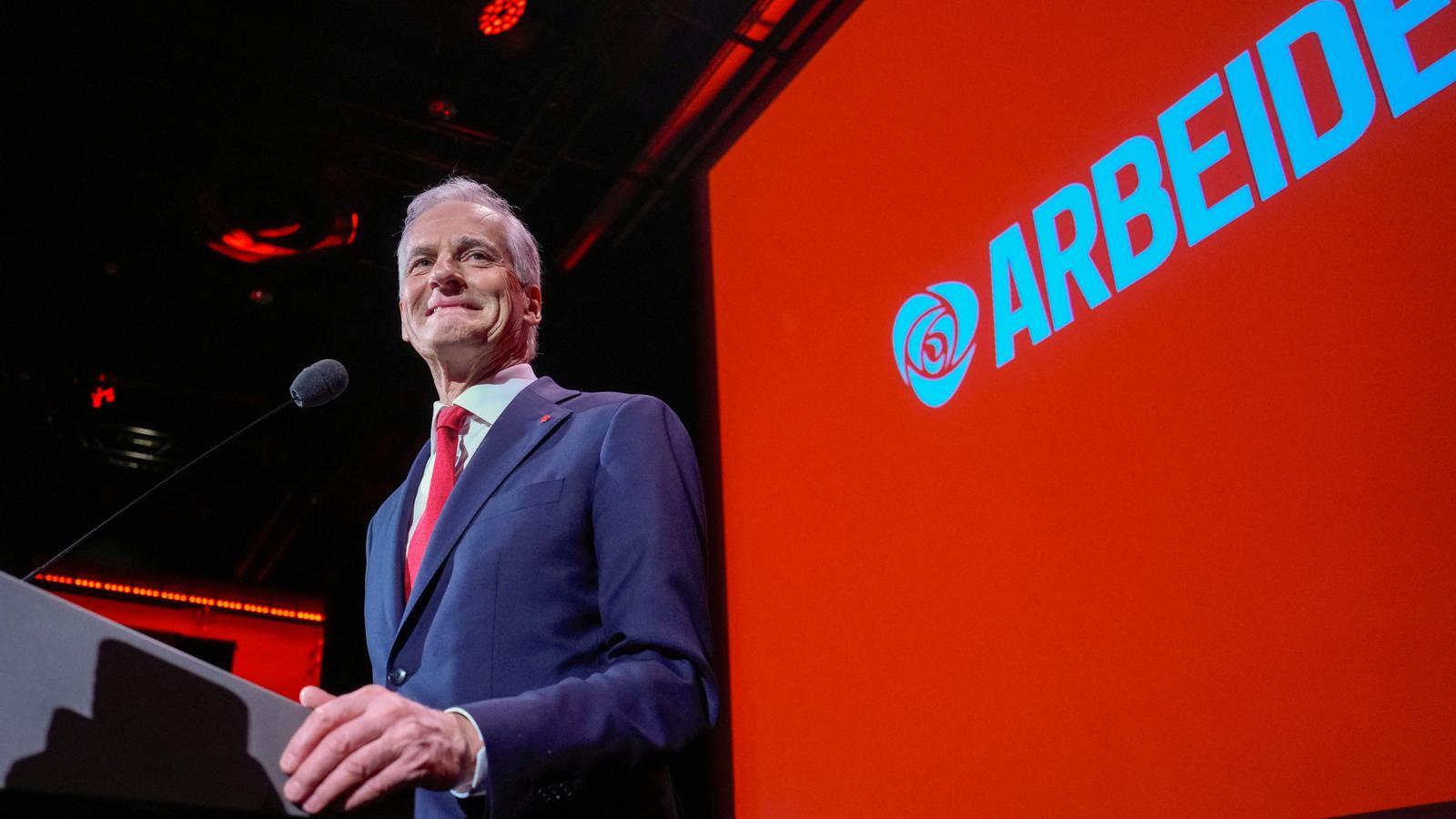Norwegian Labour Party members protest: "Social democracy can also win against the right-wing wave."
The center-left achieves an electoral victory that seemed very difficult given the rise of right-wing populism.


CopenhagenWith the rise in the polls and the increase in popularity of the far-right Progress Party (FrP), few thought a year ago that the Labour Party of Prime Minister Jonas Gahr Store could win the Norwegian parliamentary elections againHowever, on Monday night, at the Social Democrats' headquarters, a euphoric Store, overcome with victory, delivered a very clear message: "This is a signal outside Norway that social democracy can also win despite the right-wing wave."
In just a few months, Store has managed to counter the unpopularity of his government, and Labour has finally managed to slightly improve on its previous results, at a time when social democracy seems almost breathless in the rest of Europe.
The Labour Party began to recover in the polls with the return of former NATO Secretary General Jens Stoltenberg as Finance Minister, considered a very popular and consensus-building figure in his country. Stoltenberg also reportedly benefited from the fact that, in times of global uncertainty with the wars in Ukraine and Gaza, he has managed to present himself to voters as a politician with experience in international politics and a more stable figure than the PRF leader, Sylvi Listhaug.
According to analysts, Donald Trump's return to the White House, imposing a policy of tariffs and threatening a NATO ally like Denmark (something that has been looked at askance from Norway), has also served to consolidate the calm and diplomatic government that represents the Labour leader.
However, the elections were a close call until the very last moment in a highly polarized election campaign. With the results of the polls, experts predict that the Labour Party will opt to continue governing as a minority in Parliament. However, Store will need the support of four smaller center-left parties, which promises a very complicated scenario to pass key laws such as the budget.
On the one hand, the Socialist Left Party and the Red Party have already issued an ultimatum in exchange for their support. These parties are demanding that the Sobirà Pension Fund –the richest man in the world, linked to oil industry profits – must divest from Israeli defense-related investments, a condition that must be met before negotiations with Labor can begin.
As for the Green Party, they are asking the new government to formulate a plan to phase out oil and gas extraction, which means the country giving up its role as the EU's leading gas exporter and the world's eighth-largest oil producer. For the Social Democrats, this is a difficult demand, given the weight of the oil industry in the country's economy, as its multi-billion-dollar revenues have sustained the Nordic country's welfare state model for decades. On the other hand, "since the war in Ukraine, the Labour Party has argued that Norway should continue to supply gas and not neglect the rest of Europe," analyst Johannes Bergh explains to ARA.
Finally, the Centre Party, an agrarian party considered one of the most Eurosceptic in Parliament, has said it will not support Labour if the government continues to approach and give in to EU demands. In fact, relations between Norway and the EU have already created tensions between the two political parties, to the point that they broke off the governing coalition between the two parties last January following the adoption of an energy directive from Brussels. Although Norway is not an EU member state, it does have access to the Schengen Area and the European Economic Area (EEA), so its government is obliged to incorporate some of the legislation approved by the EU.
In this regard, Store has made it clear that she does not want to make any changes to the country's relationship with the EU, therefore, "it is unlikely that in the coming years she will open the debate for greater integration," Bergh explains, "since this is an issue that Labour has largely ignored because it deeply divides society."
Historic result for the far right
The other side of the parliamentary elections is the realization that the Conservative Party, traditionally the largest party in the right-wing bloc, has been unable to present itself as a clear and effective opposition to the rise of the far right. As a result, the party of former Prime Minister Erna Solberg has obtained its worst results in the last twenty years. The fact is that the Conservatives' more moderate proposals to cut taxes and put more money in taxpayers' pockets have been overshadowed by the populist offensive of the FrP, which has promised deep tax cuts for the wealthy, restrictions on the arrival of immigrants, and a crackdown on crime. It is imported from Sweden.
